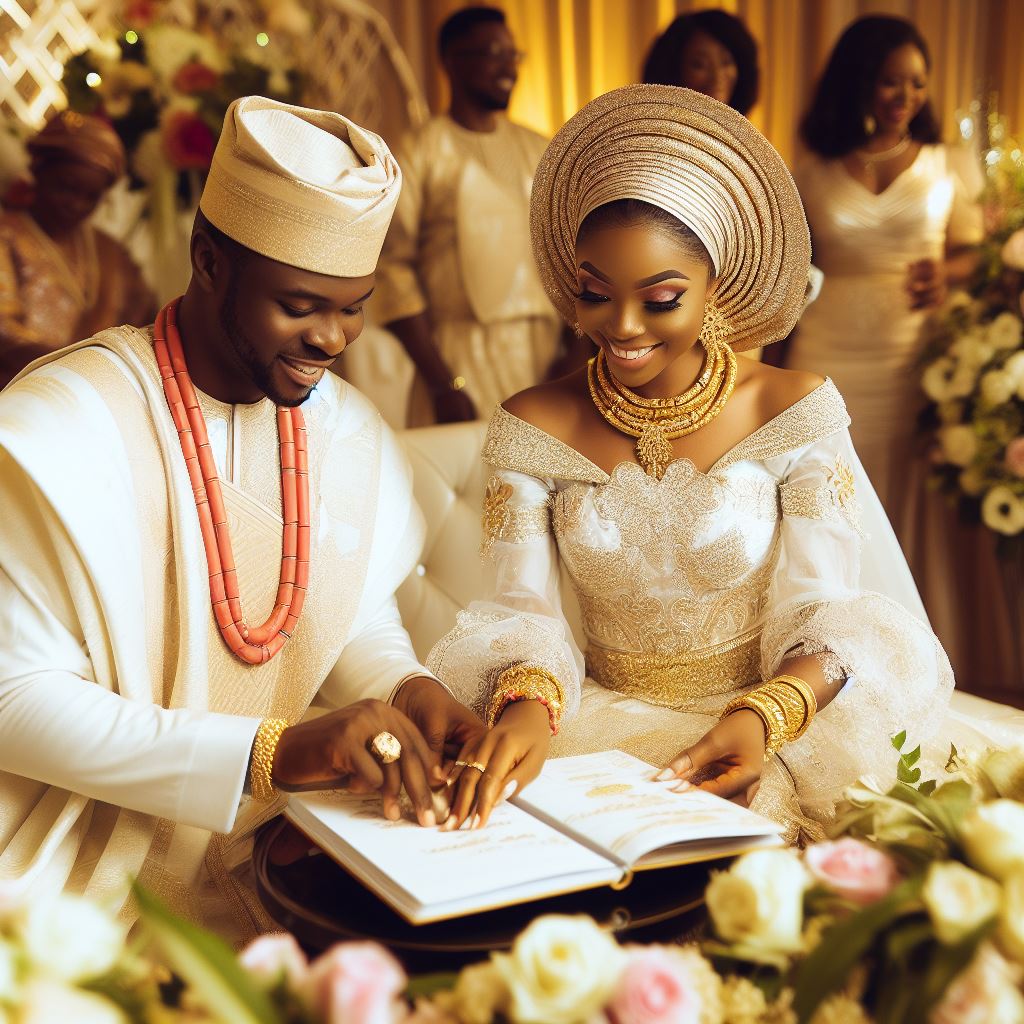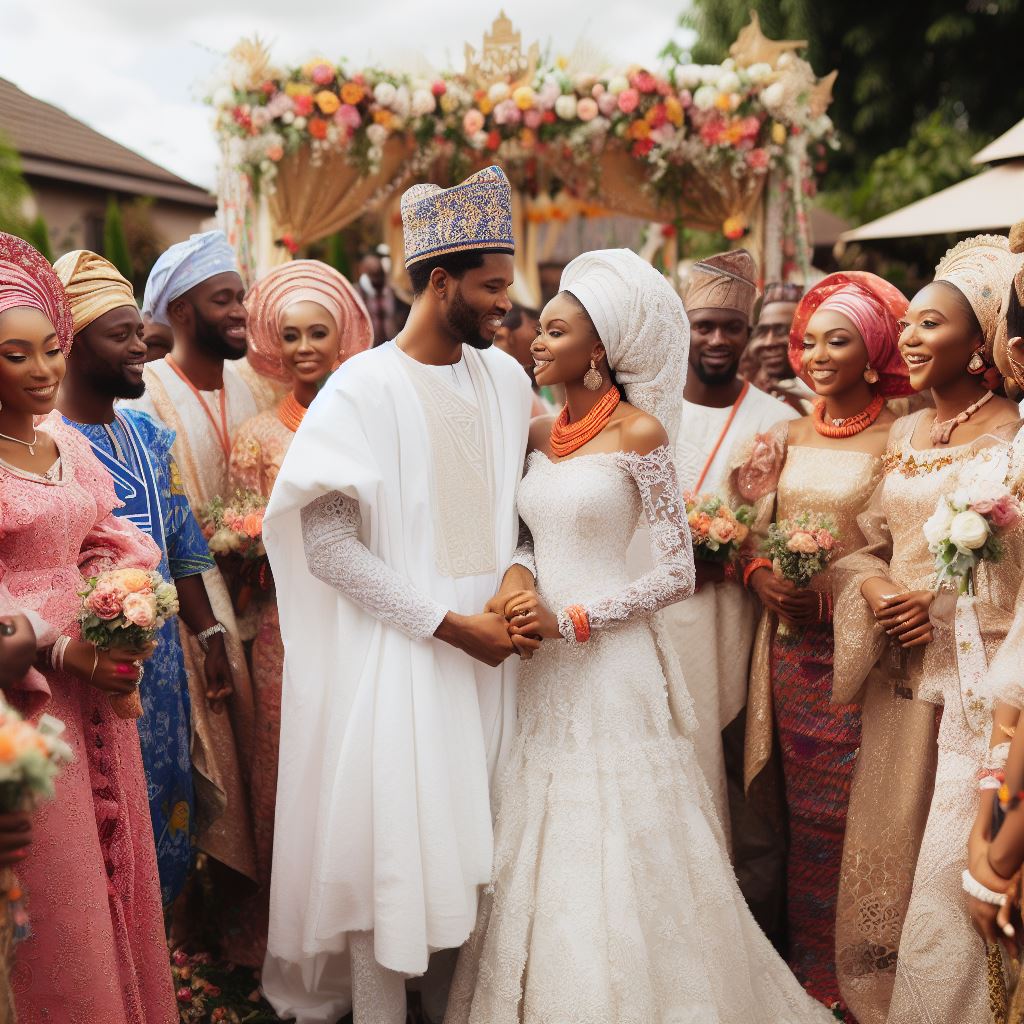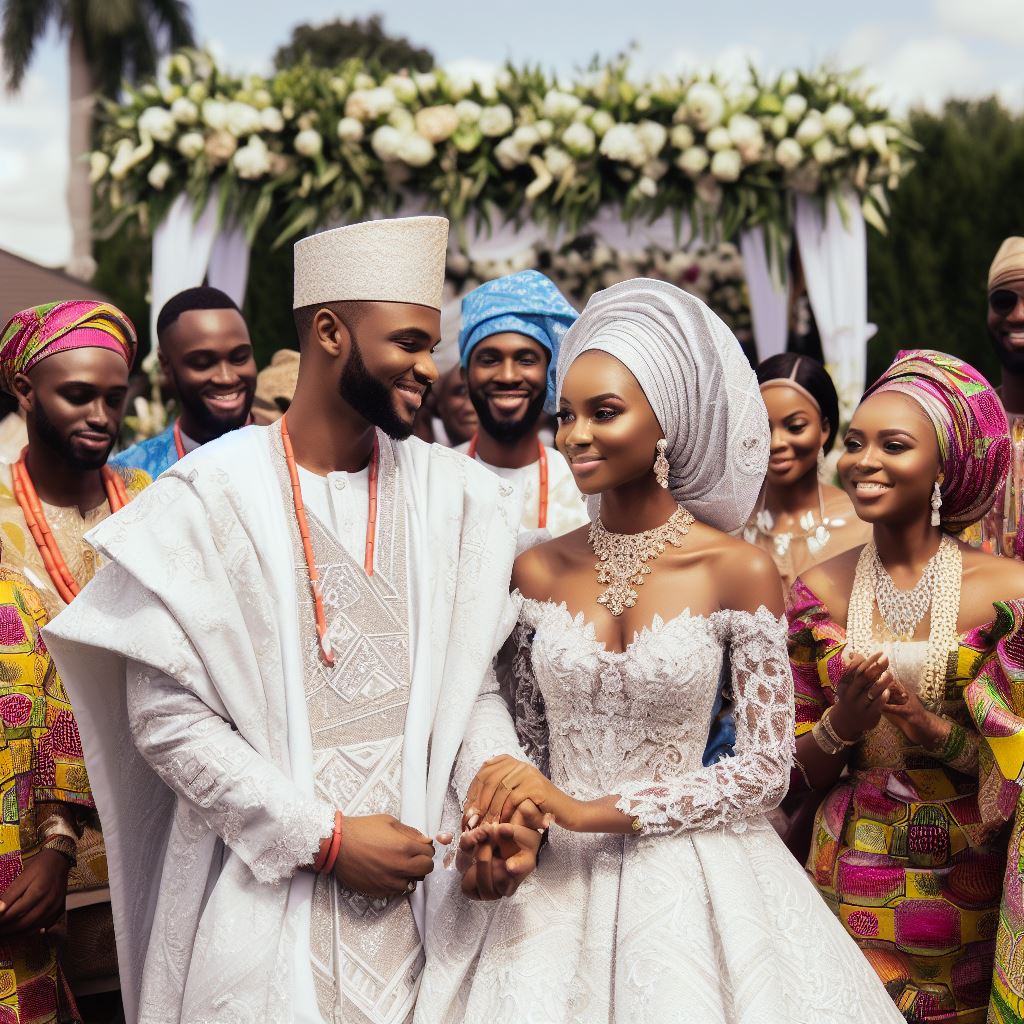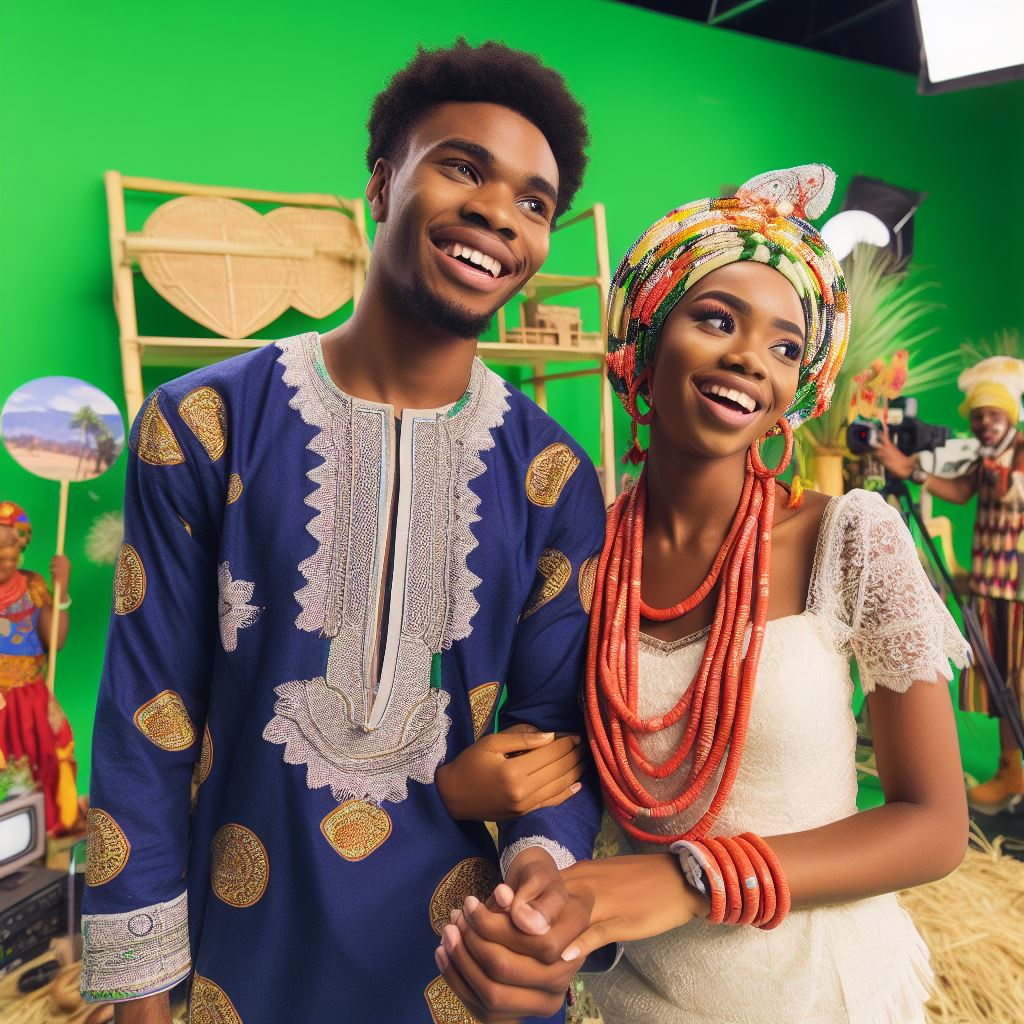Introduction
Marriage in Nigeria has transformed dramatically over the years, as societal norms and values have shifted.
The traditional view of marriage, deeply rooted in cultural and religious practices, is now being challenged by modern ideals and practices.
In the past, marriage in Nigeria was primarily seen as an arrangement between families, aiming to strengthen social bonds and maintain cultural traditions.
It was a union mainly influenced by parental consent and community approval. However, with the emergence of globalization and changing societal dynamics, attitudes towards marriage have evolved.
Today, many Nigerians, especially in urban areas, view marriage as a personal choice based on love, compatibility, and shared goals and values.
The emphasis is on individual happiness and personal fulfillment, rather than solely adhering to societal expectations.
Furthermore, the rise of social media and increased access to information has empowered Nigerian youth to challenge long-standing traditions and norms.
This has resulted in a growing acceptance of alternative relationship structures, such as cohabitation and same-sex relationships.
However, it is important to note that traditional perspectives on marriage still hold strong in many rural areas and among older generations.
Cultural and religious practices continue to dictate the expectations and roles within marriages.
Basically, the definition of marriage in Nigeria is a complex and evolving concept.
While modern ideals and practices are gaining ground, traditional views still play a significant role.
This blog post will delve deeper into these differing definitions, exploring the implications for Nigerian society.
Traditional Nigerian Marriage
Exploring the traditional concept of marriage in Nigeria
In traditional Nigerian society, marriage is more than a union between two individuals; it is a sacred institution deeply rooted in culture, customs, and ceremonies.
The concept of marriage holds immense significance, and it is passed down through generations as a way to preserve the cultural heritage of the Nigerian people.
Role of parents and Extended Family in matchmaking and Decision-making
Parents and extended family members play a pivotal role in traditional Nigerian marriages.
They are actively involved in the matchmaking process, taking into consideration factors such as family background, social status, and compatibility.
Their decision-making power is respected, and they ensure that the couple’s union aligns with the values and traditions of their community.
Cultural practices, customs, and ceremonies
Cultural practices, customs, and ceremonies are integral components of traditional Nigerian marriages.
These practices vary across different ethnic groups, reflecting the diversity of Nigeria.
From the Igbo’s wine carrying ceremony to the Yoruba’s engagement ceremony, each ethnic group has unique rituals that symbolize the binding nature of marriage and promote unity among families.
Economic aspects of traditional marriages, including bride price and dowry
Economic aspects also play a significant role in traditional marriages.
The groom’s family is expected to pay a bride price to the bride’s family as a symbolic gesture of appreciation and to demonstrate the groom’s ability to provide for his future wife.
Additionally, dowry exchanges, involving the giving of gifts or money from the bride’s family to the groom’s family, further solidify the economic ties between both families.
Patriarchal nature and gender roles within traditional marriages
Traditional Nigerian marriages often adhere to a patriarchal structure, where men hold dominant roles and women are expected to fulfill certain gender-specific responsibilities.
Men are typically seen as the head of the household, decision-makers, and providers, while women are assigned roles such as child-rearing, household management, and supporting their husbands.
Generally, traditional Nigerian marriages encompass rich cultural practices, customs, and ceremonies that have withstood the test of time.
Parents and extended family members play a crucial role in matchmaking and decision-making, emphasizing the importance of community involvement.
Economic aspects, including the bride price and dowry, further bind families together.
Moreover, traditional marriages often adhere to patriarchal gender roles, reflecting the broader societal structures.
These aspects collectively define and shape the institution of marriage in Nigeria.
Read: Love and Respect: Unearthing Biblical Verses on Marriage
Modern Nigerian Marriage
Understanding the modern interpretation of marriage in Nigeria
In recent years, Nigerian society has witnessed significant shifts in the way marriage is perceived and practiced.
The modern interpretation of marriage in Nigeria is characterized by several factors that have shaped the way Nigerians define and approach marriage.
Influence of Western culture and globalization in shifting perspectives
Understanding the modern Nigerian marriage requires taking into consideration the influence of Western culture and globalization.
As Nigeria becomes more interconnected with the rest of the world, Nigerians are exposed to new ideas and perspectives on marriage, leading to a shift in their own beliefs and practices.
Increasing emphasis on love, companionship, and personal compatibility
One notable change in the modern Nigerian marriage is the increasing emphasis on love, companionship, and personal compatibility.
Traditional marriages were often arranged based on factors such as family background, social status, and economic considerations.
However, modern Nigerians place greater importance on finding a partner they truly love and connect with on a personal level.
Changing dynamics of courtship, dating, and choosing a life partner
The dynamics of courtship, dating, and choosing a life partner have also undergone significant changes in modern Nigerian marriages.
In the past, parents and extended family members played a central role in selecting a spouse.
Nowadays, young Nigerians have more say in choosing their life partners, with courtship and dating becoming more common and accepted ways of getting to know a potential spouse.
Rise of individualism and shifting gender roles within modern marriages
Moreover, modern Nigerian marriages have witnessed the rise of individualism and shifting gender roles.
Traditionally, gender roles within marriages were highly patriarchal, with men as the breadwinners and decision-makers.
However, the modern Nigerian marriage sees a greater emphasis on equality and shared responsibilities between partners, with women playing more active roles in both the household and society.
Essentially, the modern Nigerian marriage has been shaped by various factors that have redefined the institution.
The influence of Western culture and globalization, coupled with changing perspectives on love and compatibility, has transformed the way Nigerians perceive and approach marriage.
The dynamics of courtship, dating, and gender roles have also experienced significant shifts. As Nigeria continues to evolve, so too will its definition of marriage.
Read: Strength in Unity: Marriage Verses from Ecclesiastes
Comparison of Traditional and Modern Nigerian Marriages
Contrast in the role of families in matchmaking and decision-making
In traditional Nigerian marriages, the role of families in matchmaking and decision-making is significant.
Families play a critical role in selecting potential partners, considering factors such as family background, social status, and compatibility.
This involvement ensures that the couple enters into a union that aligns with the family’s values and expectations.
In contrast, modern Nigerian marriages prioritize individual autonomy.
Individuals have more freedom to choose their own partners based on personal preferences, interests, and compatibility.
While families may still be consulted, the final decision rests with the individuals involved.
Differences in cultural practices, customs, and ceremonies
Cultural practices, customs, and ceremonies also differ between traditional and modern Nigerian marriages. Traditional weddings are often vibrant and rich in cultural significance.
They include traditional dances, rituals, and ceremonies that showcase the unique customs and traditions of different ethnic groups.
These ceremonies typically require extensive planning and involve the participation of extended family members and the broader community.
Modern Nigerian weddings, on the other hand, may embrace more contemporary elements while still respecting cultural traditions.
Couples may choose to have simpler ceremonies that focus on personal preferences and individual expression.
This shift allows couples to incorporate modern trends, such as western-style white wedding gowns, without completely abandoning their cultural heritage.
Economic aspects of marriage: bride price, dowry, and financial obligations
Economically, traditional Nigerian marriages commonly involve the payment of a bride price by the groom’s family to the bride’s family.
The bride price serves as a symbolic gesture to show appreciation for the bride’s family and to secure the marriage.
It can also act as a form of financial security for the bride and her family.
In modern Nigerian marriages, financial obligations still exist, but they are often approached differently.
Couples may negotiate and agree upon financial arrangements that suit their circumstances.
The focus is on mutual understanding, financial stability, and the well-being of the couple rather than the specific exchange of monetary value.
Power dynamics and gender equality within marriages
Power dynamics and gender equality within marriages are areas that have evolved in modern Nigerian society.
Traditional Nigerian marriages often adhere to traditional gender roles, where men are the primary decision-makers and providers, while women take on domestic responsibilities.
However, there is a growing awareness of the importance of gender equality within marriages.
Modern Nigerian marriages strive for gender equality, with both spouses sharing decision-making responsibilities and contributing to family finances.
Couples are encouraged to communicate openly, respect each other’s opinions, and work together to establish a balanced partnership.
This shift in power dynamics allows for greater mutual respect and support within the marriage.
In general, the comparison of traditional and modern Nigerian marriages reveals significant differences.
Traditional marriages uphold family involvement in matchmaking and decision-making, embrace elaborate cultural practices, and involve economic aspects such as bride price.
On the other hand, modern marriages prioritize individual autonomy, may have simpler ceremonies, approach financial obligations differently, and aim for greater gender equality.
Understanding these distinctions can foster appreciation for the diverse ways in which Nigerians define and experience marriage today.
Read: Commitment and Marriage: Bible Verses to Live By
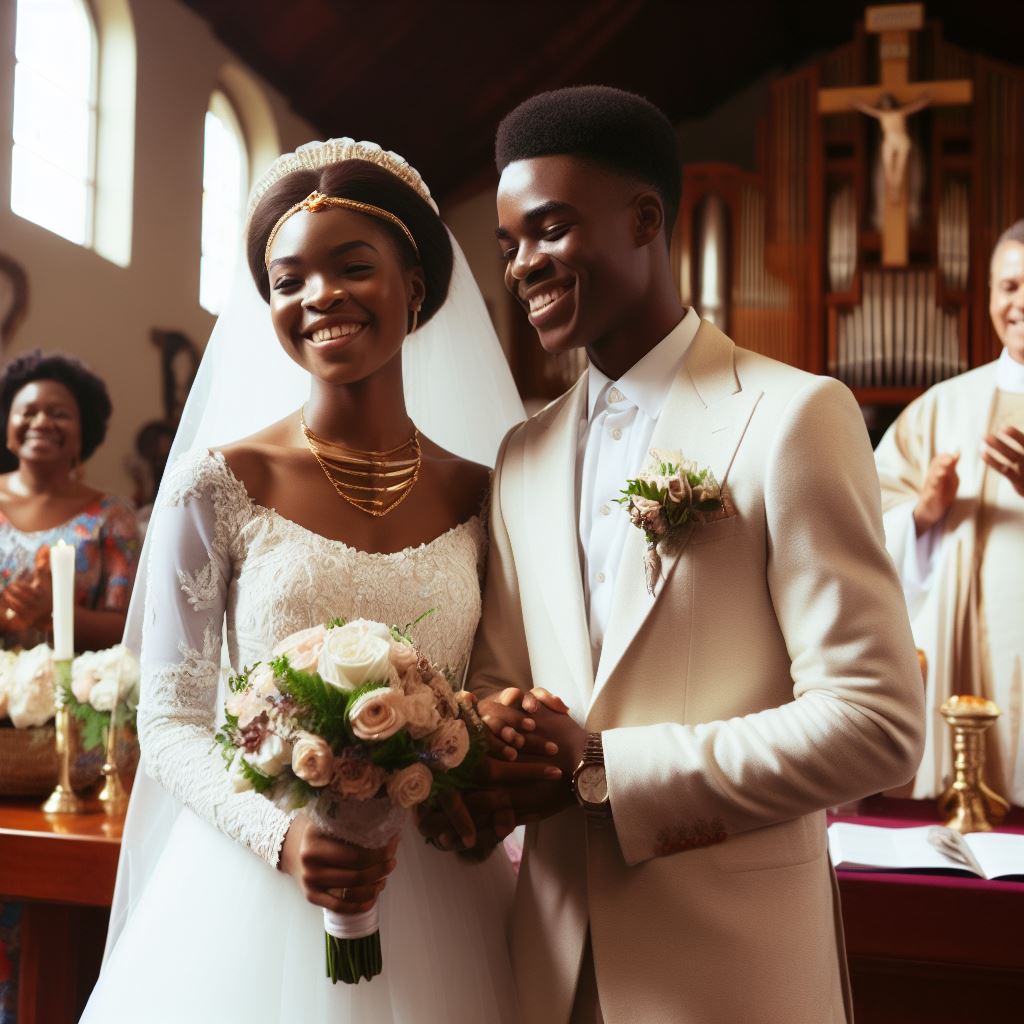
Learn More: Legal Age and Consent: Navigating Nigeria’s Marriage Laws
Challenges and Controversies
Challenges Faced by traditional marriages in a modern society
- Traditional marriages often struggle to adapt to the changing societal expectations and values.
- The patriarchal nature of traditional marriages poses challenges in the face of increasing gender equality.
- The rigid roles and responsibilities assigned in traditional marriages can limit individual freedom and personal fulfillment.
- Modern society’s focus on individualism and personal happiness clashes with the collective and familial-oriented nature of traditional marriages.
- Modern technologies and social media platforms also contribute to challenges faced by traditional marriages, increasing the temptation of infidelity and promoting unrealistic relationship expectations.
Criticisms against bridewealth and its impact on gender equality
- Bridewealth, a traditional practice where the groom’s family provides goods or money to the bride’s family, is often criticized for perpetuating gender inequality.
- Critics argue that this practice commodifies women and reinforces their subordinate status in society.
- Bridewealth can lead to the objectification of women, as their worth is often measured in monetary terms.
- It can also create a power dynamic imbalance between the two families, with the groom’s family exerting control over the bride’s family.
- The reliance on bridewealth as a requirement for marriage can hinder women’s empowerment and prevent them from entering into marriages of their choice.
The shift towards divorces and separation rates in modern marriages
- Modern marriages are experiencing an alarming increase in divorces and separation rates.
- The breakdown of traditional social and religious norms surrounding divorce has contributed to this shift.
- Increased economic independence and empowerment of women have made them less reliant on marriage for financial security.
- Changing societal expectations, such as the emphasis on romantic love and personal fulfillment, can lead to unrealistic expectations and marriages becoming disposable.
- Modern marriages are also more exposed to external influences and temptations, making it easier to give in to the urge for separation rather than working through the challenges.
Balancing Cultural traditions with modern societal expectations
- Striking a balance between cultural traditions and modern societal expectations is a continuous challenge for Nigerians.
- While cultural traditions hold significant value, they may clash with the individual desires and aspirations of modern couples.
- Couples are often torn between preserving their cultural roots and embracing the freedoms and choices offered by modern society.
- Finding compromises and open communication are vital in navigating this delicate balance.
- Educating society about the importance of cultural heritage while promoting respect for individuals’ choices can help bridge the gap between traditional and modern perspectives on marriage.
In a nutshell, the challenges and controversies surrounding modern vs. traditional marriages in Nigeria are multidimensional and complex.
Traditional marriages must adapt to the changing times and overcome challenges related to gender inequality, societal expectations, and external influences.
Balancing cultural traditions with modern expectations requires open-mindedness and understanding from both individuals and society as a whole.
Ultimately, finding equilibrium between tradition and modernity is essential for Nigerian marriages to thrive in today’s ever-evolving world.
Read: God’s Plan for Marriage: Rooted in Biblical Scriptures
Delve into the Subject: Hausa Marriage Rites: Beyond The Vow Exchange
Find Out More: Marriage Milestones: Offering Prayers of Gratitude Together
Conclusion
Recap of Contrasting Definitions
In contemporary Nigeria, the definition of marriage has evolved.
Traditional customs, deeply rooted in history and culture, continue to shape unions.
Simultaneously, modern notions of marriage, emphasizing equality and personal choice, have gained prominence.
Emphasizing Understanding
Understanding these contrasting perspectives is crucial.
Traditional marriage in Nigeria represents the preservation of cultural heritage and the importance of familial bonds.
In contrast, the modern concept of marriage emphasizes individual autonomy and gender equality.
Recognizing the value of both approaches allows for a more inclusive and tolerant society.
Closing Thoughts on the Future
The future of marriage in Nigeria appears promising when these contrasting definitions find common ground.
A harmonious blend of tradition and modernity can strengthen the bonds of family, community, and the nation as a whole.
The coexistence of old customs and new ideals can create a more inclusive and progressive society, ensuring that the institution of marriage remains vibrant and relevant in the evolving landscape of Nigeria.

